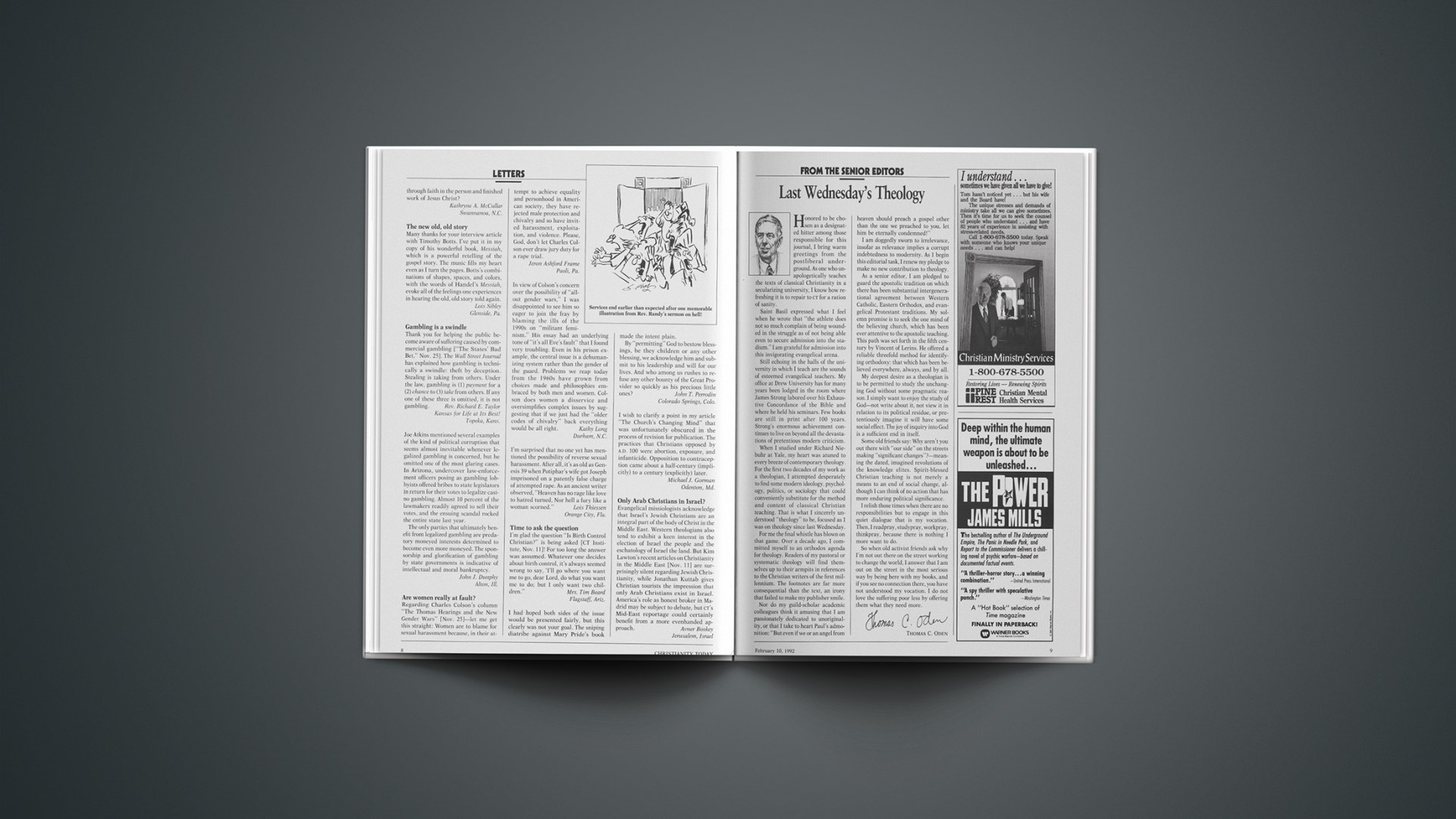Honored to be chosen as a designated hitter among those responsible for this journal, I bring warm greetings from the postliberal underground. As one who unapologetically teaches the texts of classical Christianity in a secularizing university, I know how refreshing it is to repair to CT for a ration of sanity.
Saint Basil expressed what I feel when he wrote that “the athlete does not so much complain of being wounded in the struggle as of not being able even to secure admission into the stadium.” I am grateful for admission into this invigorating evangelical arena.
Still echoing in the halls of the university in which I teach are the sounds of esteemed evangelical teachers. My office at Drew University has for many years been lodged in the room where James Strong labored over his Exhaustive Concordance of the Bible and where he held his seminars. Few books are still in print after 100 years. Strong’s enormous achievement continues to live on beyond all the devastations of pretentious modern criticism.
When I studied under Richard Niebuhr at Yale, my heart was atuned to every breeze of contemporary theology. For the first two decades of my work as a theologian, I attempted desperately to find some modern ideology, psychology, politics, or sociology that could conveniently substitute for the method and content of classical Christian teaching. That is what I sincerely understood “theology” to be, focused as I was on theology since last Wednesday.
For me the final whistle has blown on that game. Over a decade ago, I committed myself to an orthodox agenda for theology. Readers of my pastoral or systematic theology will find themselves up to their armpits in references to the Christian writers of the first millennium. The footnotes are far more consequential than the text, an irony that failed to make my publisher smile.
Nor do my guild-scholar academic colleagues think it amusing that I am passionately dedicated to unoriginality, or that I take to heart Paul’s admonition: “But even if we or an angel fromheaven should preach a gospel other than the one we preached to you, let him be eternally condemned!”
I am doggedly sworn to irrelevance, insofar as relevance implies a corrupt indebtedness to modernity. As I begin this editorial task, I renew my pledge to make no new contribution to theology.
As a senior editor, I am pledged to guard the apostolic tradition on which there has been substantial intergenerational agreement between Western Catholic, Eastern Orthodox, and evangelical Protestant traditions. My solemn promise is to seek the one mind of the believing church, which has been ever attentive to the apostolic teaching. This path was set forth in the fifth century by Vincent of Lerins. He offered a reliable threefold method for identifying orthodoxy: that which has been believed everywhere, always, and by all.
My deepest desire as a theologian is to be permitted to study the unchanging God without some pragmatic reason. I simply want to enjoy the study of God—not write about it, not view it in relation to its political residue, or pretentiously imagine it will have some social effect. The joy of inquiry into God is a sufficient end in itself.
Some old friends say: Why aren’t you out there with “our side” on the streets making “significant changes”?—meaning the dated, imagined revolutions of the knowledge elites. Spirit-blessed Christian teaching is not merely a means to an end of social change, although I can think of no action that has more enduring political significance.
I relish those times when there are no responsibilities but to engage in this quiet dialogue that is my vocation. Then, I readpray, studypray, workpray, thinkpray, because there is nothing I more want to do.
So when old activist friends ask why I’m not out there on the street working to change the world, I answer that I am out on the street in the most serious way by being here with my books, and if you see no connection there, you have not understood my vocation. I do not love the suffering poor less by offering them what they need more.










